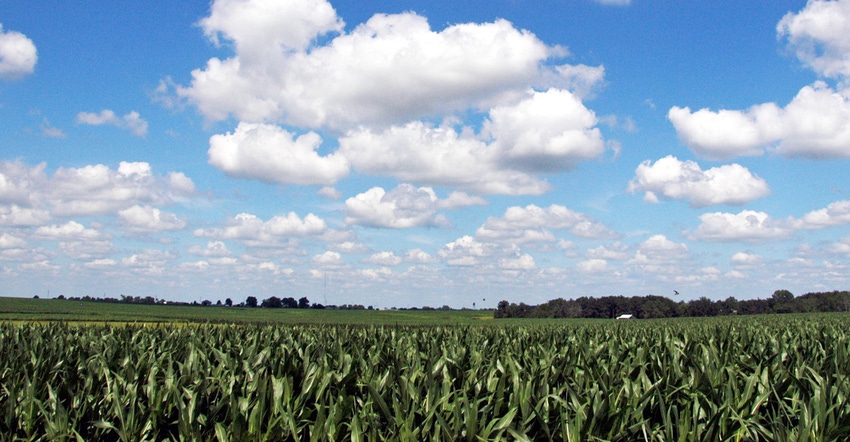
Policy affects much of what farmers do to manage their operations — both state and federal. Farm Progress recently spoke with estate planning attorney and longtime Prairie Farmer columnist Curt Ferguson for a comparison of the tax plans of the two presidential candidates, Donald Trump and Joe Biden, and how they might affect estate plans.
Certainly, any tax plan would be subject to Congress, and as Ferguson notes wryly, “would fundamentally transform the way we work our way around them.”
Here’s a look at what Ferguson has to say, with a note that most of Trump’s plan refers to the 2017 tax bill, so it’s a look at what he’s done versus what Biden is proposing.
Income tax rates. One of the foundational things Biden is saying is no tax increases unless you make over $400,000. The 2017 Trump tax cut lowered all rates. The top rate went from 39.6% to 37%. Biden is proposing that top rate go back up to 39.6%.
Capital gains tax rates. The 2017 tax cuts didn’t really change rates on capital gains tax, but Trump is suggesting a further rate reduction at the top rate levels, from 20% to 15%. Historically, that’s not out of line, as it was 15% from 2003 to 2010.
Biden would like to raise long-term capital gains tax rates from 20% to 39.6% — basically take it to the top margin on the income tax rate. But that would only apply to individuals with more than $1 million of taxable income in a year. That’s a small number of people, but if you sell land, you could reach that tax bracket pretty easily. That would have substantial impact on estates.
Qualified business income deduction. This was introduced in the 2017 tax bill, and gave sole proprietors, partnerships and S corporations a 20% deduction for their taxable income. That’s helped a lot of farmers. Biden would like to phase out that deduction if you make more than $400,000.
Corporate tax rates. The 2017 tax bill made a big change in corporate tax rates for C corporations. It was 35%, and it became a flat 21%. The reduction to 21% made it more feasible to get income out of the corporation. Biden would like to raise the 21% to 28%.
Social Security/self-employment tax. Trump is proposing that the tax deferral through the end of the year be forgiven and not collected. Biden’s proposal is aimed at the $400,000 folks; if your income is over that, you start paying 15% payroll taxes. That won’t affect most farmers, unless you have a very good year and maybe sell some equipment. Then tacking 15% on would be pretty brutal.
Like-kind exchanges. For years, if you sold one piece of farmland and bought another, you could defer capital gains tax until the second piece of land was sold. Biden would eliminate the like-kind exchange if the taxpayer makes more than $400,000 that year. If you sell a piece of property that year and want to exchange, it will be significantly more than $400,000.
Federal estate tax exemption. Trump doubled the $5 million estate tax exemption, to $11,580,000. A married couple could pass $23 million to heirs without federal estate tax. That’s set to revert in 2025. Trump is proposing to make it permanent. Biden’s only direct proposal is to revert to a $5.9 million exemption.
Capital gains tax on estates. First, a lesson on stepped-up basis. Stepped-up basis means if you bought land for $400,000 several years ago and it’s worth $2 million when you die, the basis when your kids get it is moved up to the value on the date of your death — so $2 million. That means nobody pays capital gains tax on it, even if a farming heir buys from nonfarming heirs. Stepped-up basis saves your heirs a ton in capital gains tax.
Let’s say you have $1 million worth of equipment and you’ve taken depreciation on it. Currently, your heir can re-depreciate that equipment, if you’ve planned carefully.
Biden has two features in his plan, and one is unfortunate, but the other is disastrous for farmers.
The unfortunate one is that he wants to eliminate stepped-up basis. That means the $400,000 in land that’s now worth $2 million can go to your kids, and so long as they don’t sell, it doesn’t hurt them. If they do sell, they’ll pay taxes. Plus, equipment inheritance can’t be re-depreciated.
The disastrous option, if we’re all interpreting this correctly, is that he would tax built-in gain through appreciation. So that $2 million in land would be taxed on your death as if it were being sold, and so would the equipment, even if it was depreciated to zero. The capital gains tax proposal would raise it to 39.6%, which means the tax on $2 million of land and $1 million of equipment would be around $1 million.
That would be a pretty devastating change for farmers, if Congress went along with it.
About the Author(s)
You May Also Like






